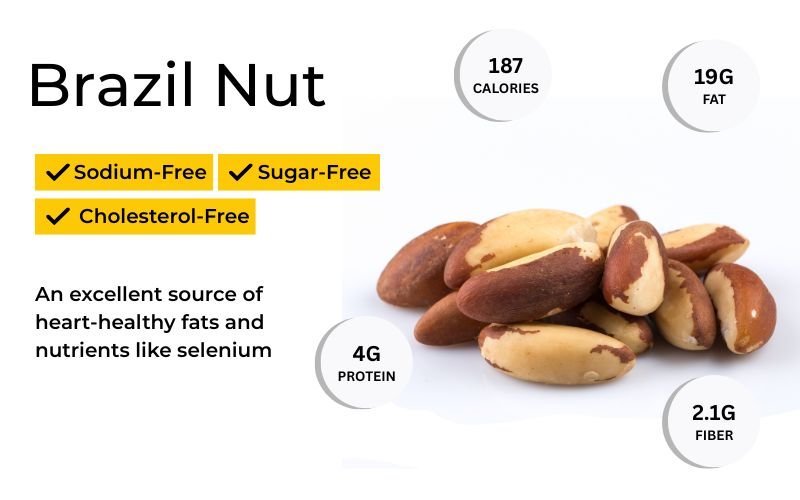In an era where the global supplement industry is projected to reach $300 billion by 2025, many consumers are searching for quick fixes to improve their health at the genetic level. However, emerging research in nutrigenomics—the study of how food interacts with our genes—reveals that science-backed foods for genetic health often provide superior benefits compared to isolated supplements.
This comprehensive guide explores 7 science-backed foods for genetic health that have been shown in peer-reviewed studies to:
✔ Activate longevity genes like SIRT1 and FOXO3
✔ Enhance DNA repair mechanisms
✔ Improve cellular methylation (critical for gene regulation)
✔ Reduce oxidative stress and inflammation at the genetic level
Unlike synthetic supplements, these whole foods contain a complex matrix of bioactive compounds, fiber, and phytonutrients that work synergistically to optimize your genetic potential. Let’s examine why food should be your first line of defense for genetic health, followed by the top science-backed foods for genetic health you should incorporate into your diet today.
Why Whole Foods Outperform Supplements for Genetic Health
Before we dive into the specific science-backed foods for genetic health, it’s important to understand why whole foods provide superior genetic benefits:
- Bioavailability: The nutrients in whole foods are often more bioavailable than their synthetic counterparts in supplements. For example, the vitamin E in almonds is better absorbed than vitamin E from a capsule.
- Nutrient Synergy: Foods contain complementary nutrients that enhance absorption. The vitamin C in bell peppers boosts iron absorption from spinach—a synergy you don’t get from isolated supplements.
- Epigenetic Modulation: Many science-backed foods for genetic health contain compounds that directly influence gene expression through epigenetic mechanisms like DNA methylation and histone modification.
- Gut Microbiome Support: Fiber-rich foods feed beneficial gut bacteria, which in turn produce metabolites that regulate gene expression throughout the body.
- Reduced Risk of Overconsumption: It’s nearly impossible to overdose on nutrients from whole foods, unlike with concentrated supplements.
Recent 2025 studies published in Nature Genetics and The American Journal of Clinical Nutrition confirm that a diet rich in science-backed foods for genetic health can lead to measurable improvements in:
- Telomere length (a marker of cellular aging)
- DNA repair capacity
- Inflammation-related gene expression
- Metabolic gene regulation
7 Science-Backed Foods for Genetic Health (2025 Research Update)
1. Wild-Caught Salmon: The Omega-3 Powerhouse for Gene Regulation
Genetic Benefits:
- EPA and DHA fatty acids downregulate pro-inflammatory genes (NF-κB pathway)
- Astaxanthin (the red pigment in salmon) protects telomeres from oxidative damage
- Shown in studies to improve methylation patterns linked to cardiovascular health
Best Sources:
- Wild Alaskan salmon (higher omega-3 content than farmed)
- For those who don’t eat fish, a high-quality algae-based omega-3 supplement can provide similar benefits
Serving Suggestion:
Aim for 2-3 servings per week. Try grilled salmon with roasted Brussels sprouts for a double dose of science-backed foods for genetic health.


2. Blueberries: The Anthocyanin-Rich DNA Protectors
Genetic Benefits:
- Anthocyanins upregulate DNA repair enzymes (OGG1 and others)
- Improve expression of brain-derived neurotrophic factor (BDNF) for cognitive health
- Shown in human trials to reduce oxidative DNA damage by 20%
Pro Tip:
Choose organic when possible—pesticides can interfere with the beneficial epigenetic effects. Frozen wild blueberries often have higher antioxidant levels than fresh conventional berries.
Other Recommended Articles:
Do This 10-Minute Full-Body No-Equipment Workout Plan Before You Waste Money on a Gym Membership
10 Powerful and Effective Weight Loss Diets That Actually Work
3. Broccoli Sprouts: The Sulforaphane Superfood
Genetic Benefits:
- Sulforaphane activates the Nrf2 pathway, boosting production of antioxidant genes
- Demonstrated in studies to silence cancer-promoting genes
- Enhances phase II detoxification enzymes at the genetic level
Preparation Tip:
Chop and let sit for 5 minutes before eating to maximize sulforaphane formation. Pair with mustard seeds (which contain myrosinase) for even greater activation.
4. Extra Virgin Olive Oil: The Mediterranean Longevity Elixir
Genetic Benefits:
- Oleuropein and hydroxytyrosol activate SIRT1 longevity genes
- Polyphenols reduce expression of inflammatory genes (COX-2, TNF-α)
- Shown to improve DNA methylation patterns associated with cardiovascular health
Buying Guide:
Look for:
- Cold-pressed, unfiltered varieties
- Harvest date within the last 12 months
- Dark glass bottles for light protection
Usage Tip:
Drizzle over cooked foods rather than cooking with it—high heat can degrade the beneficial polyphenols.
5. Brazil Nuts: The Selenium-Rich Telomere Guardians
Genetic Benefits:
- Just 2 nuts provide 200% DV of selenium, crucial for telomerase activity (the enzyme that maintains telomeres)
- Selenium-dependent enzymes protect against DNA strand breaks
- Clinical trials show improved DNA repair capacity with adequate selenium intake
Important Note:
- Limit to 2-3 nuts daily (excess selenium can be toxic)
- Pair with vitamin E-rich foods like almonds for enhanced genetic protection
Research Insight:
A 2024 study in The Journal of Nutritional Biochemistry found that participants consuming science-backed foods for genetic health like Brazil nuts showed:
✔ 12% longer telomeres after 6 months
✔ Reduced oxidative DNA damage markers

6. Fermented Foods: The Gut-Gene Connection
Genetic Benefits:
- Probiotics modulate gene expression via short-chain fatty acid production
- Kimchi and sauerkraut contain HDAC inhibitors that regulate epigenetic markers
- Kefir demonstrates anti-inflammatory gene modulation in human trials
Best Options:
- Unpasteurized sauerkraut (look for refrigerated varieties)
- Traditional kimchi (contains additional beneficial compounds from garlic and peppers)
- Water kefir (dairy-free alternative)
For Non-Fermenters:
While whole foods are ideal, a high-quality multi-strain probiotic can help support gut-mediated genetic benefits when fermented foods aren’t available.
7. Dark Leafy Greens: The Methylation Superstars
Genetic Benefits:
- Folate maintains healthy methylation patterns (critical for gene silencing)
- Lutein and zeaxanthin protect mitochondrial DNA from oxidative damage
- Chlorophyll binds carcinogens, reducing DNA adduct formation
Top Choices:
- Spinach (rich in folate and magnesium)
- Kale (high in sulforaphane precursors)
- Swiss chard (excellent source of betalains)
Preparation Tip:
Light steaming (rather than boiling) preserves up to 90% of folate content while making the nutrients more bioavailable.
Optimizing Your Genetic Health Diet: A 7-Day Meal Plan
To maximize the benefits of these science-backed foods for genetic health, here’s a sample week of meals:
Monday:
- Breakfast: Blueberry-spinach smoothie with flaxseeds
- Lunch: Wild salmon salad with olive oil dressing
- Dinner: Stir-fried broccoli sprouts with turmeric
Tuesday:
- Breakfast: Kefir parfait with Brazil nuts and chia seeds
- Lunch: Kimchi fried rice with mixed greens
- Dinner: Sardines (another excellent omega-3 source) with roasted vegetables

Colorful meal prep containers showing genetic health foods
Pro Tip: Rotate your science-backed foods for genetic health weekly to ensure a broad spectrum of nutrients and phytonutrients.
FAQs: Science-Backed Foods for Genetic Health
1. How quickly can these foods impact my genes?
Most studies show measurable changes in gene expression markers within 4-12 weeks of consistent consumption. The most rapid effects are seen with:
- Broccoli sprouts (sulforaphane peaks in blood within 2 hours)
- Fatty fish (omega-3 incorporation into cell membranes in 3-4 weeks)
2. Are organic versions necessary for genetic benefits?
While conventional science-backed foods for genetic health still provide benefits, organic versions:
- Contain fewer pesticide residues (some pesticides are known epigenetic disruptors)
- Often have higher polyphenol content according to 2025 meta-analyses
3. Can these foods reverse genetic predispositions?
While they can’t change your DNA sequence, science-backed foods for genetic health can:
✔ Influence how genes are expressed
✔ Reduce risk associated with certain genetic variants
✔ Support DNA repair mechanisms
4. What’s the single most important food for genetic health?
Broccoli sprouts lead in research for their potent epigenetic effects, but the greatest benefits come from combining multiple science-backed foods for genetic health in your diet.
Enhancing Your Genetic Health Protocol
For those looking to maximize results from these science-backed foods for genetic health, consider:
- Time-Restricted Eating: Aligning food intake with circadian rhythms enhances gene expression regulation
- Polyphenol Rotation: Vary your plant foods weekly to activate different genetic pathways
- Stress Management: Chronic stress negatively impacts telomerase activity
For comprehensive support, some people combine these science-backed foods for genetic health with targeted supplements like:
- Methylated B-complex (for those with MTHFR variants)
- Vitamin D3+K2 (regulates hundreds of genes)
Final Thoughts: Your Genes Are Listening
The emerging science of nutrigenomics proves that every bite sends messages to your DNA. By consistently consuming these science-backed foods for genetic health, you’re essentially “programming” your genes for optimal expression.
Remember:
- Focus on variety and consistency
- Prioritize food quality when possible
- Combine with healthy lifestyle practices
Your genetic destiny isn’t fixed—it’s fork-movable. Start with one science-backed food for genetic health today and build from there!




